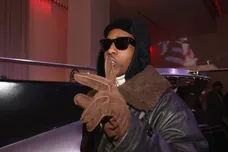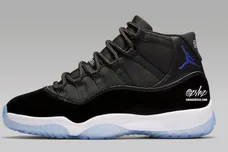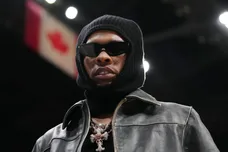Earlier this month, a report emerged indicating that no hip-hop album or single has topped the Billboard 200 or Hot 100, respectively. Still, hip-hop remains a dominant genre in America and across the world. The Billboard charts are certainly indicative of an artist’s success but it doesn’t define their artistry. “That’s the mindset of a pop artist,” Big Daddy Kane told HotNewHipHop in response to the recent Billboard report. “You know, I mean, that’s what matters in popular music. You know, not how great the person is singing, not how dope the lyrics are. None of that stuff. It's just how popular the song is.”
Kane comes from an era where the strength of one's pen carried far more weight than a Billboard entry. Next Friday, he’ll join EPMD, KRS-One, and Slick Rick as part of Doug E. Fresh’s Hip-Hop 50 performance at Essence Festival in New Orleans. The roster of artists joining forces for this performance has played a pivotal role in shaping the culture that we know today as hip-hop.
However, amid a technological revolution that has become a threat to intellectual property, Big Daddy Kane believes the younger generation of artists is facing bigger hurdles. Artificial intelligence has been a point of contention since the rise of FN Meka. Since then, we’ve heard AI replicate the voices of artists like Jay-Z and Drake, among others. It’s a frightening development but not one that puts the legacies of artists like Big Daddy Kane at risk. However, he does fear how it might impact future generations.
Big Daddy Kane’s Message To The Younger Generation

“Dear younger generation, please be careful in controlling the narrative of your artistry. Do the best that you can stand out as a unique artist in his day and era. Be that person that people respect because of you. Not because of the beat, not because of the hook, but because of you, the artist,” Kane explained. “As we move into the era of AI and holograms, we, at some point — I don’t mean a long time from now. I mean, in the near future – you won’t be relevant.”
Kane confidently states that his legacy, and those of Rakim, KRS-One, and MC Lyte, are set in stone. AI isn’t trying to replicate them. “We’re not a threat,” he continued. “This is for the younger generation: you have to, please, you know, protect your art form and your status as an artist… I think that’s something they really need to focus on so they don’t get replaced by computer technology. I would really hate to see that happen to young cats, especially the ones that truly believe that they have talent and want to showcase it.”
Kane: Hip-Hop Isn’t On The Decline But They Wish It Was

In 2023, it’s hard to imagine what hip-hop was like in the late '80s, especially for those who weren’t even born then. Cassette tapes continued to dominate the music industry years before CDs were introduced. Kane came from a courageous era where hip-hop was discounted as a fad that wouldn’t have an everlasting impact. In 2023, even if hip-hop isn’t dominating the charts, it’s hard to deny that the genre has effectively influenced pop music at large. In a sense, that’s essentially why album sales and singles hold weight in online discourse.
“I think that there are so many other music genres that would like to see the decline of hip hop,” Kane said. “Anybody that understands corporate structure, they know that what happens in that type of situation is that quantity comes in, and quality goes out.” In the current climate, it’s a delicate balance, he explains. “Hip hop is so strong and so powerful. But it's a major, major quantity. But there's not a whole lot of quality.”
Still, there are several rappers that he could count on to deliver quality music: J. Cole, Conway The Machine, Rapsody, and Lady London. “There's a certain algorithm that plays on the radio, where, you know, majority stuff sounds the same. And artists like that may not fit that format,” he said. “But there is amazing music out there. They may not be selling.. because they don't fit that algorithm. But there are a lot of talented young artists out there today. You know, I don't blame the artists, I blame the people that are in control of where music is played, and what music they're putting out and feed to the youth.”









